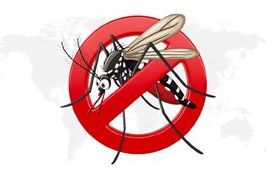The Centre for 21st Century Issues (C21st) has advocated for accelerating the fight against malaria across Nigeria through adoption of climate-resilient and gender-responsive strategies.
The centre made the call as it joined the global community in observing the World Malaria Day 2025, which has the 2025 theme as “Malaria ends with us: Reinvest, Reimagine, Reignite,”. This theme focuses on revitalizing efforts to eliminate malaria through increased investment, innovative strategies, and community action.
In a statement released to newsmen, c21st lamented the continuing scourge of malaria, as the disease continues to be a pressing public health issue, especially in urban informal settlements and underserved rural communities.
According to the advocacy group, climate change is compounding the challenge, leading to increased flooding, stagnant water, and poor waste management, which all contribute to the spread of malaria. These risks disproportionately affect women, children, and other vulnerable groups.
The organization, led by Barr Titi Akosa, a leading global empowerment and sustainable development advocate, reiterated the need for government at all levels to take proactive and inclusive measures to address the root causes of malaria through climate-smart policies and actions.
As an organization working at the intersection of climate justice, gender equality, and sustainable development, C21st urges the following:
- Improved waste management systems to eliminate breeding grounds for mosquitoes in urban markets and communities.
- Increased investment in clean and sustainable energy solutions such as clean cooking technologies that reduce indoor air pollution and promote healthier homes.
- Integration of gender and social inclusion in climate and health policies, ensuring that women and marginalized communities are not left behind.
- Support for education and public awareness on environmental health, particularly in malaria-prone areas.
Concluding, C21st restated its commitment to amplifying the voices of vulnerable groups and promoting policy solutions that protect both people and the planet.
Emphasizing its statement to mark the World Malaria Day, the organization called for stronger collaboration among government agencies, civil society, and the private sector to accelerate efforts toward eliminating malaria and building healthier, climate-resilient communities across Nigeria.







